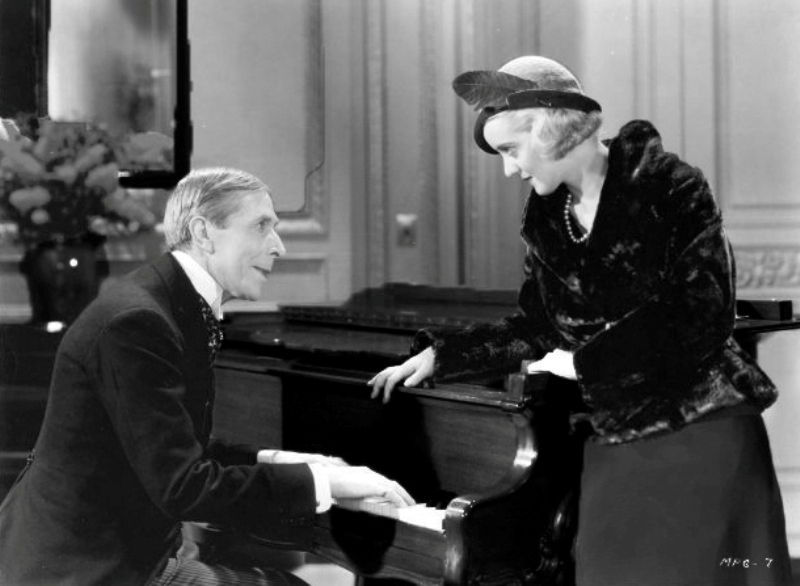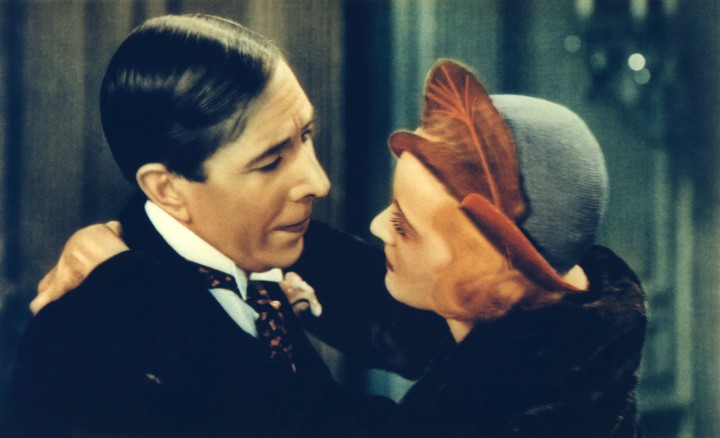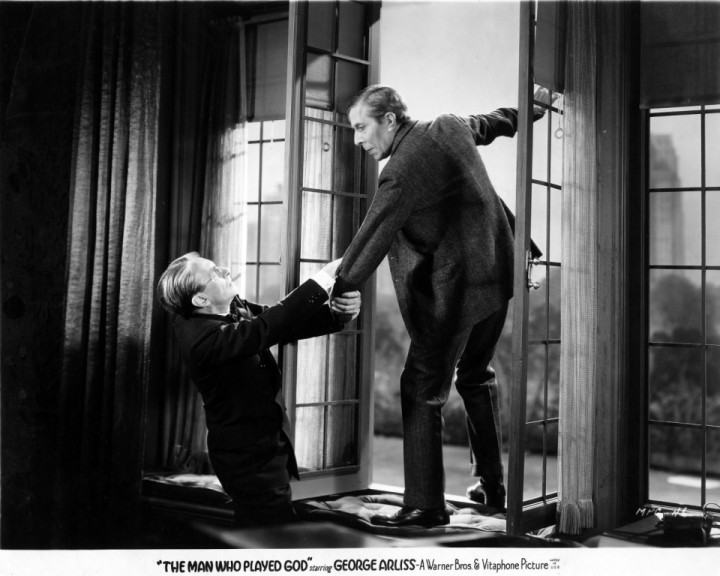The Man Who Played God marks the fourth appearance of a George Arliss film at the Asheville Film Society. The once major star fell victim to changing tastes over the years, and ended up in the realm of the largely forgotten by the 1970s, at which time he was generally dismissed by movie historians as a mannered, out-of-date ham, whose movies could be of no possible interest to the modern viewer. (Just how many of those movies these writers had seen is open to question, especially since so few of them showed up on TV.) I have never bought into this. Yes, Arliss’ acting style is from another era. It is, in fact, from the 19th century. The man was 32 years old at the beginning of the 20th century. He was trained in a different style of acting — not that he was incapable adapting to more modern styles. In his first volume of autobiography, he wrote of seeing himself in the test footage for his movie debut in The Devil (1921) and being horrified at how broad his playing was and realizing this new medium required a different — more subtle — approach. However, his style of acting was never modern. It isn’t modern today, but that neither makes it bad, nor does it make it any less entertaining.
Though he appeared in silents — all of which (except The Devil) he remade as talkies — it was sound that brought Arliss his greatest success as a film actor — at the age of 61. This was probably due to his mentor Darryl F. Zanuck (then working at Warner Bros.), who brought him to the studio for prestige purposes. He would be their most respectable asset, and was treated accordingly. To this end, Zanuck gave him total artistic control — casting, costuming, props, choice of directors, even the manner of rehearsal. (Arliss rehearsed his films as plays, using whoever was available for an audience.) I can think of no other dramatic actor who ever had this kind of control. A George Arliss picture is truly a George Arliss picture — regardless of who directed it. By the time he made The Man Who Played God, he had mastered the medium and was at the top of his game. Oh, yes, it’s still very theatrical, but it is never “stagey.” You don’t see acting like this anymore. That’s not a pity, but it is a pity that Arliss isn’t better known. It is the only record we have of an acting style that was “out of fashion” even then — a fascinating look into an otherwise lost world, a world that has merits on its own terms.






Before you comment
The comments section is here to provide a platform for civil dialogue on the issues we face together as a local community. Xpress is committed to offering this platform for all voices, but when the tone of the discussion gets nasty or strays off topic, we believe many people choose not to participate. Xpress editors are determined to moderate comments to ensure a constructive interchange is maintained. All comments judged not to be in keeping with the spirit of civil discourse will be removed and repeat violators will be banned. See here for our terms of service. Thank you for being part of this effort to promote respectful discussion.